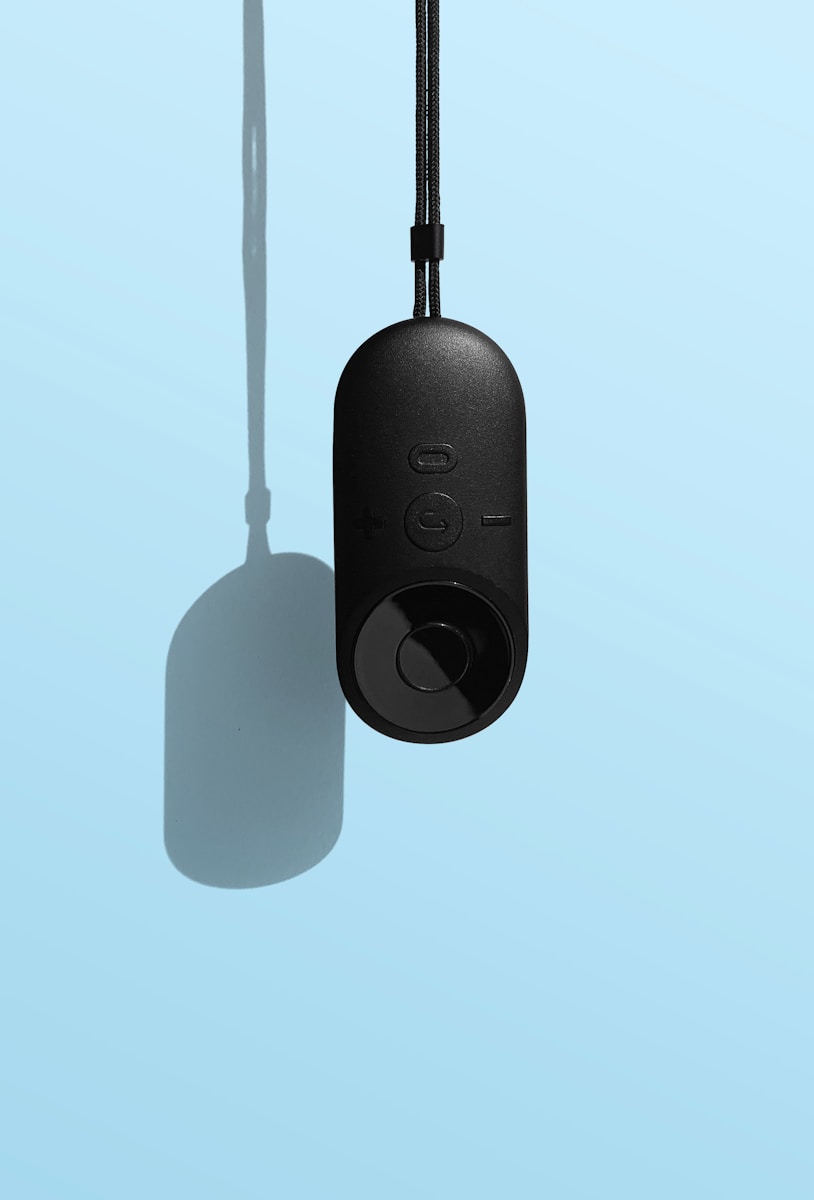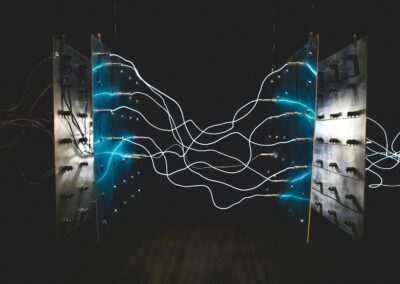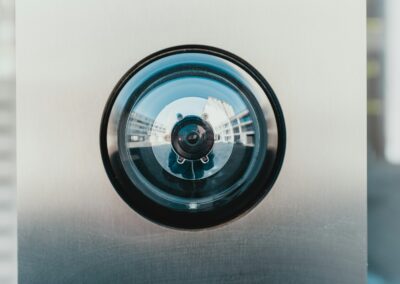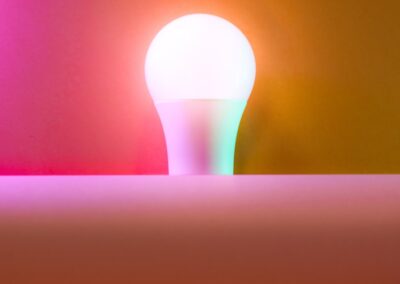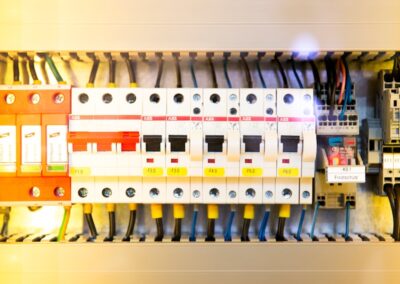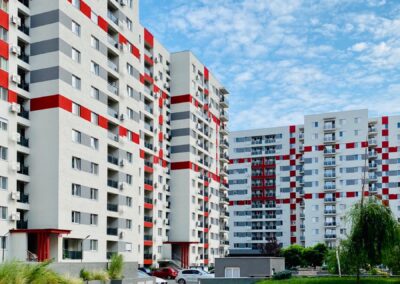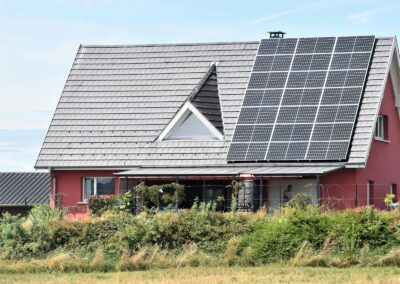Maximizing Energy Efficiency Through IoT Technologies
The Impact of IoT-Enabled Energy Solutions on Power Usage
IoT-enabled energy solutions are revolutionizing how power is managed in both commercial and residential buildings, offering a sustainable approach to reducing energy waste. As energy consumption continues to rise, particularly in rapidly growing regions like Saudi Arabia and the UAE, the need for efficient power management has become more critical than ever. IoT technologies provide the tools necessary to monitor, control, and optimize energy usage, leading to significant reductions in waste and operating costs.
In commercial buildings, IoT-enabled systems can integrate with existing infrastructure to monitor real-time energy usage, identifying inefficiencies and providing actionable insights. For instance, smart sensors and connected devices can track energy consumption across different areas of a building, allowing facility managers to make informed decisions about where and how to reduce usage. This capability is particularly valuable in large office complexes or industrial settings where energy demands are high and the potential for waste is significant.
Residential buildings also benefit from IoT-enabled energy solutions. Smart thermostats, lighting systems, and appliances can be programmed to operate more efficiently, reducing energy consumption without compromising comfort. In cities like Riyadh and Dubai, where energy demand peaks during hot summer months, IoT solutions help residents manage their energy use more effectively, reducing strain on the power grid and lowering utility bills.
Case Studies: IoT-Enabled Energy Solutions in Action
The success of IoT-enabled energy solutions is evident in various case studies from the UAE and Saudi Arabia. In Dubai, several smart buildings have implemented IoT systems that monitor and optimize energy consumption in real time. These buildings use a network of sensors to collect data on factors such as occupancy, temperature, and lighting levels. The data is then analyzed to adjust energy usage dynamically, ensuring that no energy is wasted when spaces are unoccupied or when natural light is sufficient.
In Saudi Arabia, the implementation of IoT in energy management is part of the broader Vision 2030 initiative, which aims to reduce the country’s dependence on oil and promote sustainable development. For example, the King Abdullah Financial District in Riyadh has adopted IoT technologies to manage energy usage across its various buildings. The district’s energy management system uses IoT devices to monitor and control HVAC systems, lighting, and other energy-intensive operations, leading to significant energy savings and a reduced carbon footprint.
These case studies highlight the potential of IoT-enabled energy solutions to transform how buildings manage power. By providing real-time insights and automated controls, IoT systems enable buildings to operate more efficiently, reducing energy consumption and associated costs. This not only benefits building owners and occupants but also contributes to broader sustainability goals by minimizing environmental impact.
The Future of Energy Management with IoT
Challenges and Opportunities in Implementing IoT-Enabled Energy Solutions
While the benefits of IoT-enabled energy solutions are clear, there are challenges to consider when implementing these technologies. One of the primary challenges is the integration of IoT systems with existing building infrastructure. Many older buildings may not be equipped with the necessary technology to support IoT devices, requiring significant upgrades or retrofits. Additionally, the cost of implementing IoT solutions can be a barrier, particularly for smaller businesses or residential properties.
However, these challenges also present opportunities for innovation and growth. As IoT technology continues to advance, the cost of devices and systems is expected to decrease, making them more accessible to a wider range of users. Moreover, governments in the UAE and Saudi Arabia are increasingly supporting smart city initiatives, offering incentives and subsidies for the adoption of IoT-enabled energy solutions. This support can help offset the initial costs and encourage more widespread adoption.
Looking ahead, the role of IoT in energy management is likely to expand as more buildings adopt smart technologies. In the future, we can expect to see even more sophisticated IoT systems that integrate with renewable energy sources, such as solar panels and wind turbines, to create fully autonomous energy management systems. These systems will be able to optimize energy usage based on real-time data, weather conditions, and energy availability, further reducing waste and enhancing sustainability.
The Strategic Importance of IoT in Energy Management for Businesses
For business executives, mid-level managers, and entrepreneurs, investing in IoT-enabled energy solutions offers a strategic advantage in today’s competitive market. By reducing energy consumption and associated costs, businesses can improve their bottom line while also contributing to sustainability goals. This is particularly important in regions like the UAE and Saudi Arabia, where energy costs can be high, and there is a growing emphasis on environmental responsibility.
In addition to cost savings, businesses that adopt IoT-enabled energy solutions can enhance their reputation as leaders in sustainability. In an increasingly environmentally conscious world, companies that prioritize energy efficiency and reduce their carbon footprint are likely to gain a competitive edge. Moreover, as governments in the UAE and Saudi Arabia continue to promote smart city initiatives, businesses that align with these goals may also benefit from additional support and opportunities for collaboration.
In conclusion, the role of IoT in optimizing energy usage is crucial for the future of both commercial and residential buildings. By embracing IoT-enabled energy solutions, businesses and homeowners alike can reduce waste, lower costs, and contribute to a more sustainable future. As the technology continues to evolve, the potential for even greater energy savings and efficiencies will only grow, making IoT a key component of modern energy management strategies.
#IoTEnergy, #SmartBuildings, #EnergyEfficiency, #SustainableSolutions, #UAEInnovation, #SaudiVision2030, #SmartCities









